| | | | | | | Presented By NetJets | | | | Axios World | | By Dave Lawler · May 19, 2022 | | Welcome back to Axios World. - I'm sending this from the first company-wide Axios retreat since 2019.
- For this special edition (1,696 w0rds, 6 minutes), I'm excited to bring you a story Axios senior producer Naomi Shavin and I have been working on for quite a while for the latest episode of our "How it Happened" podcast. Listen here.
Situational awareness: The Senate voted 86-11 on a nearly $40 billion military and humanitarian aid package for Ukraine, Axios' Shawna Chen writes. | | | | | | 1 big thing: On the frontlines in the Donbas | 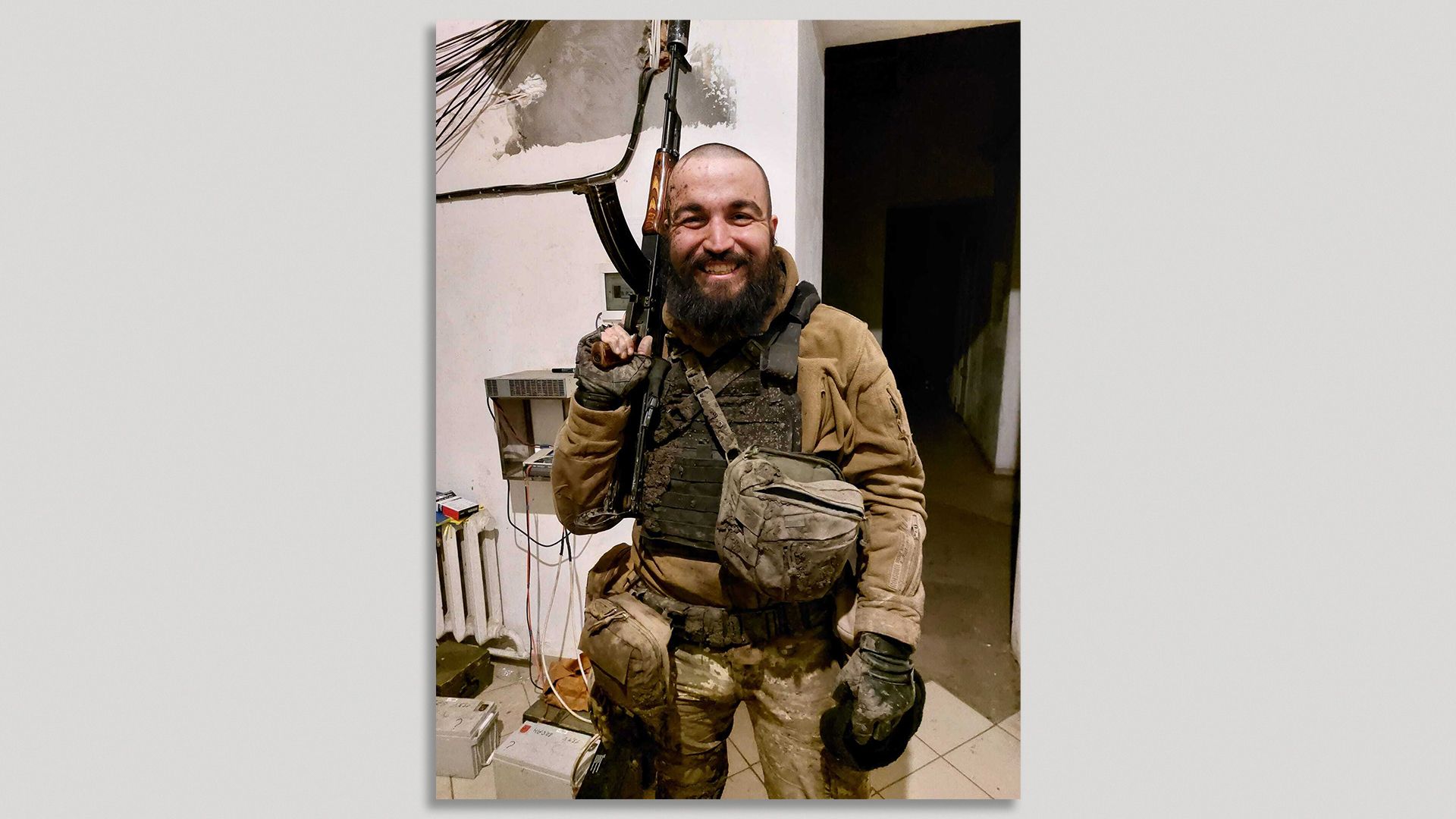 | | | Shadrin after a firefight with Russian troops. Photo courtesy of Andrii Shadrin. | | | | Ukrainian Cpl. Andrii Shadrin's unit sets off daily from its makeshift base to points along the frontlines in Luhansk Oblast in the Donbas region of eastern Ukraine. "Some of the regions we have to reach, the only road available is under absolute fire control of the enemy," he says. The big picture: Ukrainian President Volodymyr Zelensky has described soldiers in the Donbas like Shadrin as some of the best Ukraine has. Their battle to defend this region will decide the fate of the war. - We'd been in touch with Shadrin almost daily for four weeks. Our calls took place at night after he'd returned to base. They were often interrupted — by shelling, by orders for a mission, and once when he said a drone had been spotted overhead.
- He says the shelling is constant and "chaotic," striking mainly civilian infrastructure. He describes his surroundings: the sky is smeared with smoke. At night, he hears battles raging nearby.
Zoom out: After the failed effort to take Kyiv, Russian President Vladimir Putin turned his focus to the Donbas, vowing last month to "liberate" the entire region, which was partially controlled by pro-Russian separatists before he launched his full-scale invasion on Feb. 24. - In recent weeks, Russian forces have gained ground. The last Ukrainian fighters in Mariupol surrendered on Tuesday after a weeks-long siege.
- More than 90% of Luhansk, where Shadrin is fighting, is now under Russian control.
- Shadrin's unit has yet to lose a soldier, but hardly a day goes by without news that a friend has been killed, severely wounded, or captured. "I definitely know that hell [exists] and it's here. But if there is heaven and they look down on me, I want them to be proud."
Destruction in Donbas. Photo: Andrii Shadrin The morning after our first conversation, Shadrin's unit came under fire as it was repairing equipment on an outpost directly on the frontline. - As Russian infantry and tanks began to advance on them, a piece of shrapnel struck his leg. It was "a usual day, with a little bit of bad luck," he says.
- A trained medic, Shadrin, 26, treated his own wound until he could be evacuated to a hospital. He declined painkillers, knowing supplies were tight. Once he realized he could walk, he returned to base.
Some of his worst days have come when traveling through recently shelled towns. Two civilians died as he tried to save them, he says. "I hope that all the civilians will go away from here," he adds, his voice quivering with emotion. - Shadrin acknowledges that many civilians who remained behind likely supported Russia before the full-scale invasion. That's not uncommon in this largely Russian-speaking region, where many get their news from Russian state TV.
- But now, he says the civilians his unit aids beg them to stay, "not to leave them alone, one-on-one with the Russians."
- "Vladimir Putin and the Russian army did a lot for the unity of Ukrainians all around Ukraine. Because everybody now understands whom we are dealing with," he says.
|     | | | | | | Part II: A family divided |  | | | Shadrin in 2015 after joining the military. Photo courtesy of Andrii Shadrin | | | | Shadrin says his parents don't share that view of Russia, or the war. Zoom in: At home in Feodosia, a coastal resort town in Crimea, he says they absorb the Kremlin narrative of the war from Russian state TV and believe their only child has been brainwashed. - Growing up, Shadrin says he never heard the Ukrainian language outside of a classroom.
- "I am a Nazi for them," Shadrin says, though his parents, who were born in Soviet Russia, haven't told him that directly. Their only correspondence had been a weekly text to inform them he's alive. Now, those have stopped, too.
Crimea has been under Russian control since 2014 when Putin sent in "little green men" to foment a separatist insurgency in the Donbas and to swallow up Crimea altogether. - Putin took that step after Ukraine's Kremlin-friendly president, Viktor Yanukovych, was toppled by mass protests.
- When those protests broke out, Shadrin traveled to Kyiv for a few days to take part, without telling his parents.
"Before everything started in 2014, I was kind of a hippie. I had long hair, I had an earring in my ear," he says. - It's hard to picture, looking at the thick-bearded, bareheaded, and grizzled warrior on the video call, until he shares his ID photo from that time — a boyish face from the other side of the war.
- Shadrin was 18 then, studying IT in college and taking extra lessons to perfect his English.
|     | | | | | | Part III: War comes to him. He goes to war | 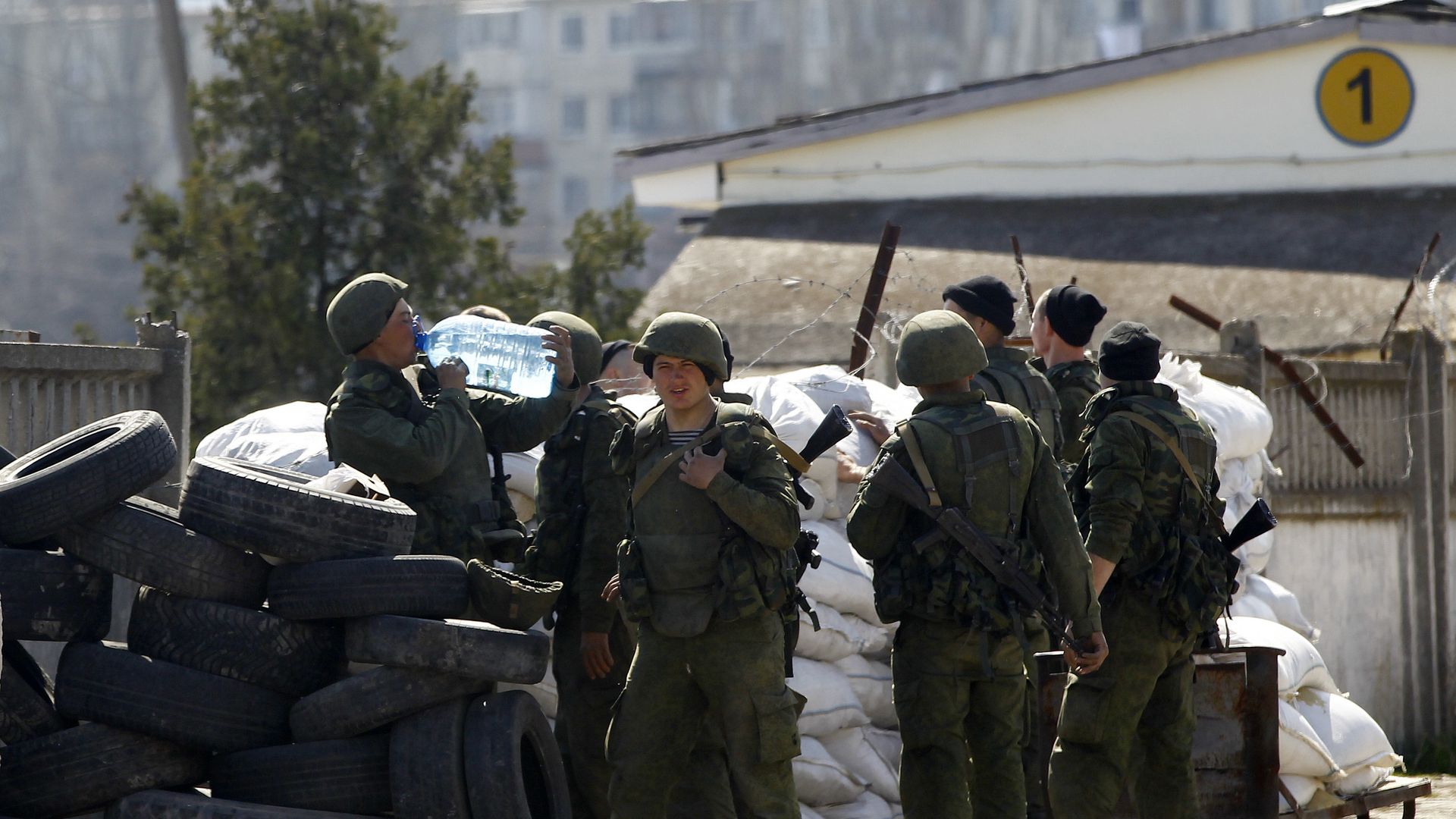 | | | Russian soldiers setting a barricade in Feodosia in March, 2014. Photo: Bulent Doruk/Anadolu Agency via Getty | | | | When the Russian occupation began, the Ukrainian Marine base in Feodosia was surrounded. Shadrin and some friends pooled money for juice, snacks, and cigarettes, which he delivered to the Marines. - "I did it until I was caught by some Russians," he says.
- "I was beaten pretty hard by them. They took all the goods ... and just left me lying on the ground," he adds. "That's when I knew I was going to fight."
Shadrin was initially rejected by the Ukrainian military. He says Crimeans were considered disloyal. Still, he successfully enlisted a few months later. - In the meantime, he volunteered for Right Sector, a militia that has been described as ultra-nationalist or far-right. Shadrin says that wasn't his experience, and that he served with soldiers from diverse backgrounds.
- But because Russia deems Right Sector an extremist group, Shadrin says he'd be arrested if he returned to Russian-occupied Crimea. He hasn't seen home or his parents for eight years.
- Since joining the army, he has served a half dozen six-month rotations in the Donbas, fighting Russian-backed separatists.
Shadrin has devoted his entire adult life to this war, barring a brief stint as a civilian from 2020 to 2021. He re-enlisted during Russia's troop build-up last year. |     | | | | | | A message from NetJets | | NetJets' impeccable service meets unrivaled performance | | | 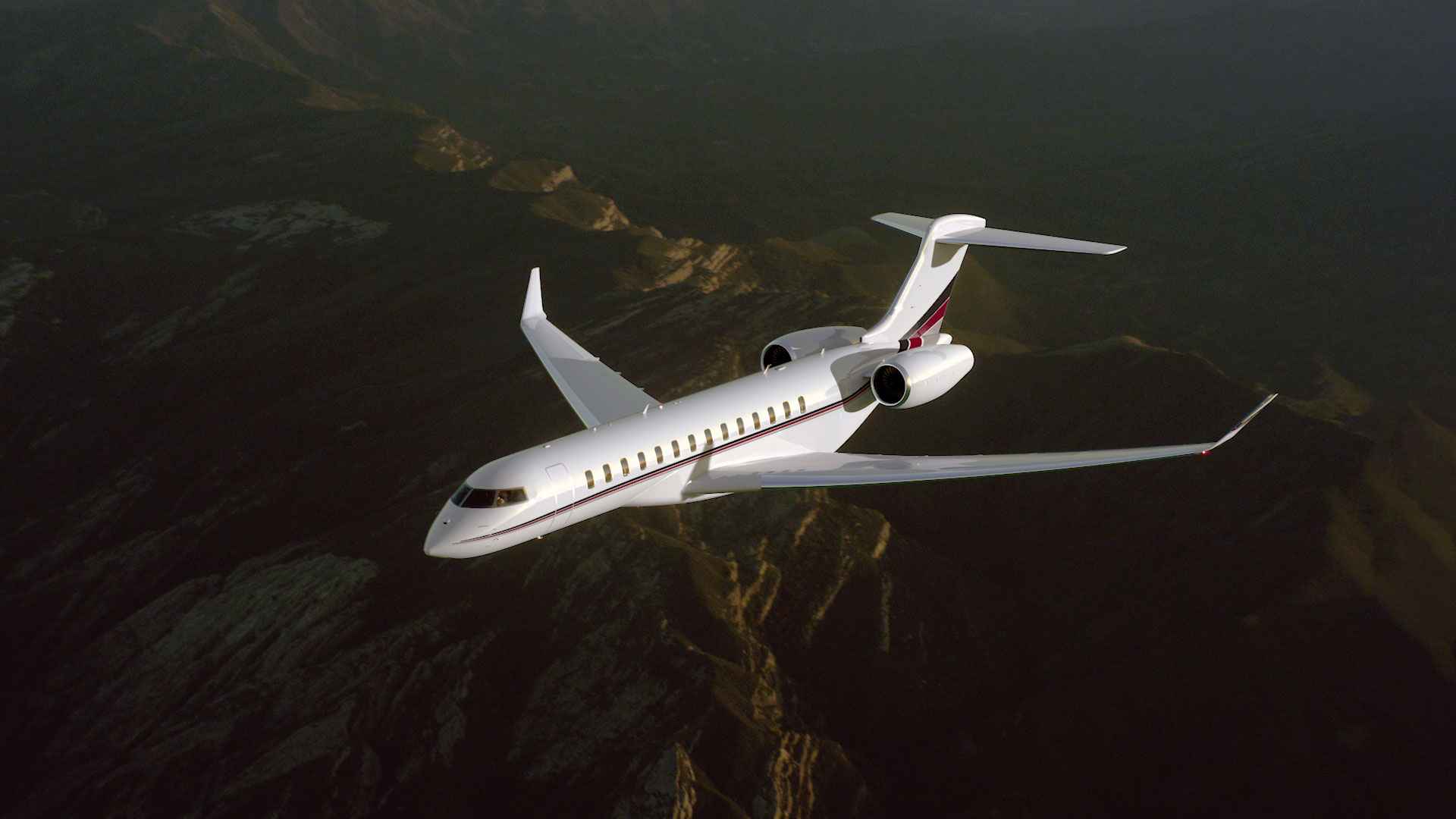 | | | | NetJets' unsurpassed safety and service standards are offered on the new Global 7500, the fastest ultralong-range business jet. Rest comfortably in the revolutionary, fully reclining Nuage seats and a private stateroom all your own. Take a tour to experience the NetJets flagship aircraft. | | | | | | Part IV: "What do I want to do?" |  | | | Shadrin in the Donbas in 2019. Photo courtesy of Andrii Shadrin | | | | Shadrin admits that the outcome of Russia's Donbas offensive is uncertain, given the force of the Russian troops and artillery. - But in the longer term, he's confident the Ukrainians will fight as long as it takes to secure victory.
Asked what he'll do when the war ends, he says there's a running joke in his unit "that we are already dead but too stupid to recognize ourselves as corpses." - "If you bring me off this service and this war, you will meet — maybe in a couple of months — a regular 26-year-old man who likes to have a couple of beers, have a chat with a girl in a pub … spend some time on a beach or something like that," Shadrin says.
- The image hangs there like an apparition, before he waves it away. He says he's more tired than he ever realized a human being could be, too "crushed inside" to "even to ask myself the question, 'what do I want to do?'"
There is one thing, though, Shadrin is sure of: "I still want to go home, and the army gives me that chance." - Ukraine seems unlikely to retake Crimea during this war, but he hopes it will happen someday, maybe even through post-war diplomacy.
- "I've lost a lot of my friends, I've lost a lot of my brothers, and of course, I don't want to lose any more," he says. Then he clarifies that thought with a rueful laugh, "death is still better than living in Russia."
|     | | | | | | Bonus: Where in the World |  | | | Screengrabs via Apple Maps | | | | Today's theme is mountain ranges. Can you name all four? Scroll to the bottom for answers. |     | | | | | | 5. Global news roundup | 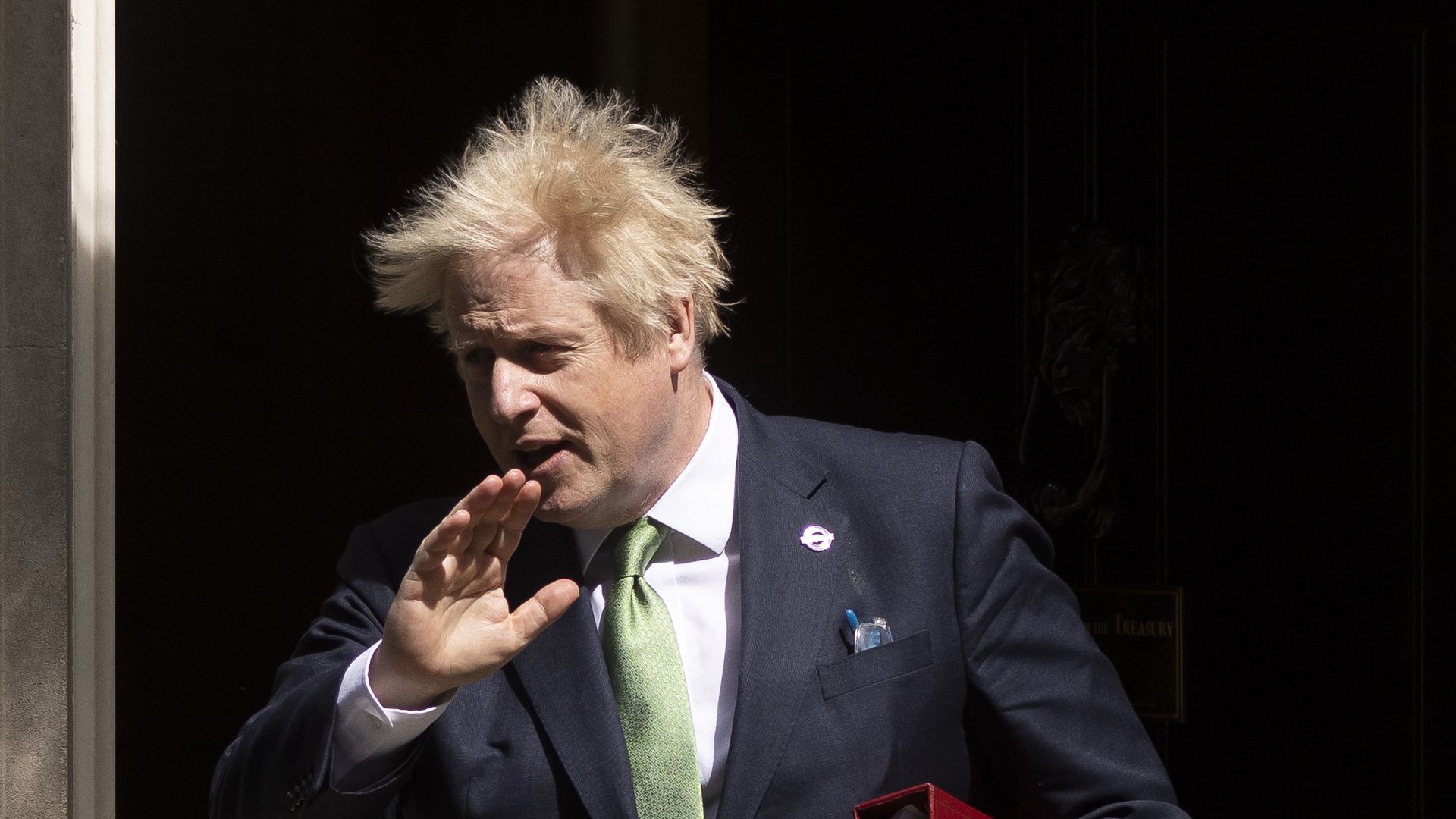 | | | U.K. Prime Minister Boris Johnson leaves 10 Downing Street on May 18. Photo: Dan Kitwood/Getty Images | | | | Axios' Laurin-Whitney Gottbrath rounds up the latest happenings: 1. British police issued 126 fines before ending their investigation into parties held at Prime Minister Boris Johnson's Downing Street residence while Britain was under a strict lockdown in 2020. - Johnson, who faced calls to resign over "partygate," and Chancellor Rishi Sunak were both fined for attending lockdown-breaking parties.
2. Israel's fragile governing coalition took another major hit today when lawmaker Ghaida Rinawi Zoabi announced she was leaving, only six weeks after the last defection, Axios from Tel Aviv author Barak Ravid reports. - The dramatic development leaves Prime Minister Naftali Bennett with a minority in the Knesset, giving the opposition a potential majority to call an election.
3. An Indian court today convicted a Kashmiri separatist leader on terrorism charges, AP reports. - Mohammed Yasin Malik, leader of the Jammu and Kashmir Liberation Front, could receive the death penalty. Malik rejected the charges, saying he was a freedom fighter.
4. The UN is leading early discussions on forming a new global coalition to boost battery storage as part of a wider clean energy platform, Axios' Andrew Freedman reports. - UN Secretary-General António Guterres laid out a five-point plan yesterday to dramatically scale up renewable energy use worldwide, including tackling thorny technology sharing issues between the industrialized world and developed nations.
|     | | | | | | 6. One to watch: Strongman spoilers inside western alliances | 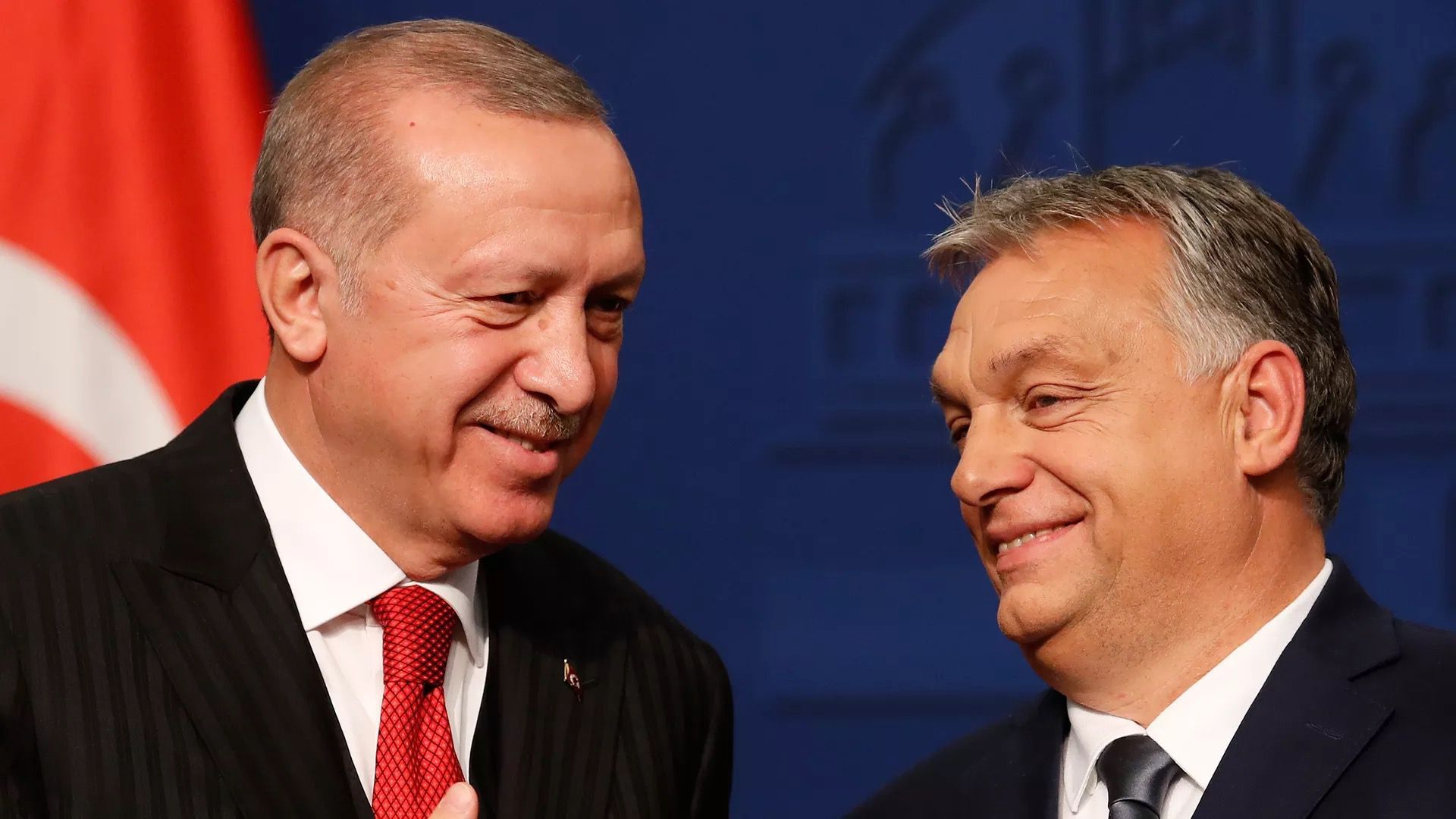 | | | Turkish President Recep Tayyip Erdoğan (left) and Hungarian Prime Minister Viktor Orbán. Photo: Laszlo Balogh/Getty Images | | | | Turkey's threat to oppose Finland and Sweden's accession to NATO has massively raised the stakes of its long-simmering tensions with the West and given Ankara new leverage to extract concessions from its own purported allies, Axios' Zach Basu writes. Why it matters: Critics have accused Turkish President Recep Tayyip Erdoğan of employing a "hostage-taking" tactic also practiced by Hungary, which for weeks has been singlehandedly blocking the European Union from imposing an embargo on Russian oil. - The outsized influence of individual member-states in the EU and NATO has drawn increased scrutiny in recent years, as it gives authoritarian-leaning states the ability to block core priorities of most other members.
- Özgür Ünlühisarcıklı, director of the German Marshall Fund's office in Ankara, told Axios that Erdoğan "saw an opportunity to extract some benefits both for Turkey and for his own political standing" ahead of a crucial election next year.
- Erdoğan believes he's "more or less free to do whatever he wants," Ünlühisarcıklı said.
Go deeper. The latest: Erdoğan doubles down on threat to reject Finland and Sweden |     | | | | | | 7. Stories we're watching | 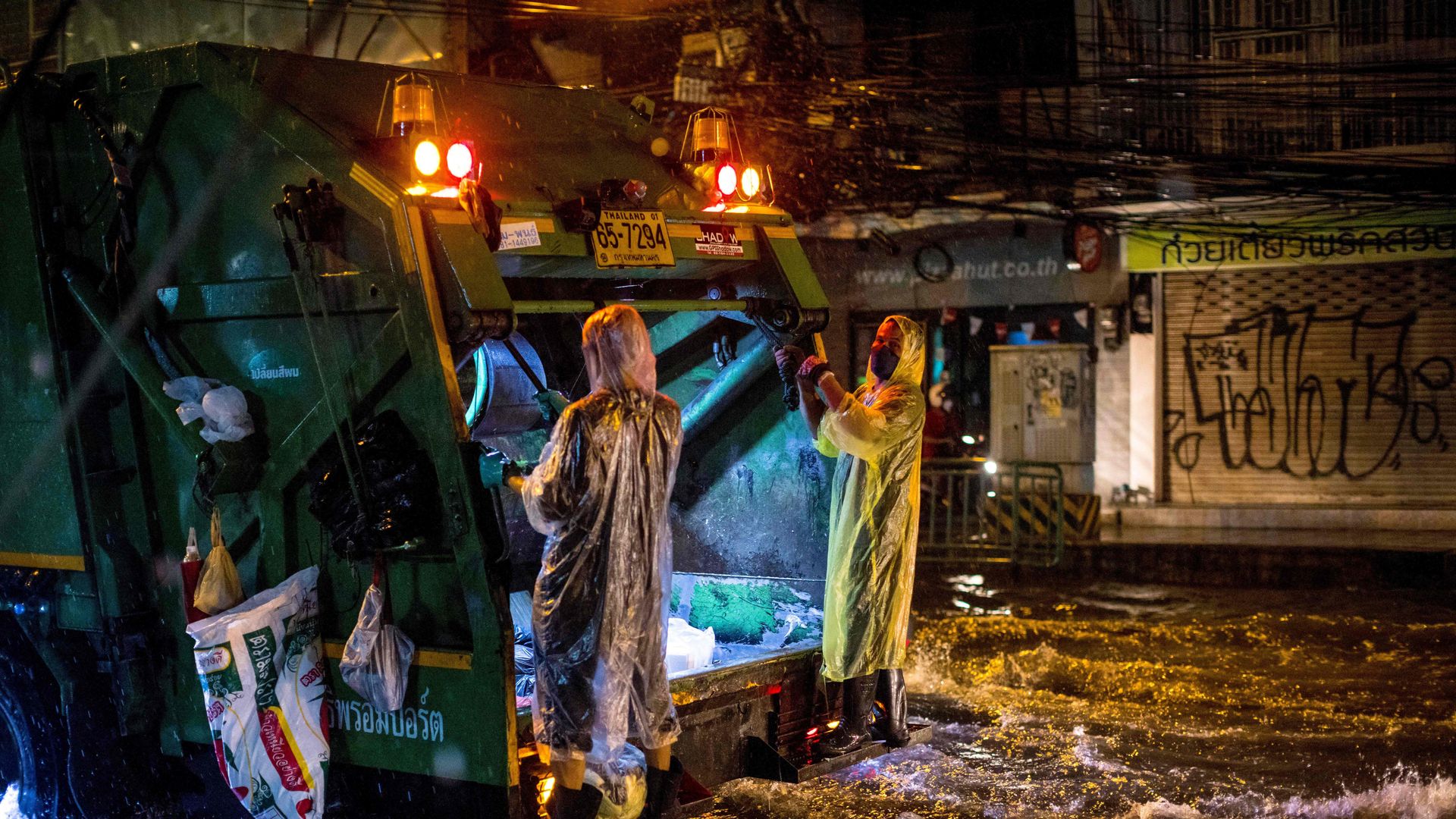 | | | Collecting trash in a flooded Bangkok. Photo: Jack Taylor/AFP via Getty | | | - U.S. to ease some economic sanctions on Venezuela
- Russian soldier pleads guilty to killing unarmed civilian
- Finland and Sweden formally apply to join NATO
- U.S. embassy in Kyiv to reopen
- Russian gymnast gets 1-year ban for wearing pro-war symbol
- Israeli military drill to simulate strike on Iran
- Podcast: The fight for the Donbas
Quoted: "The result is an absence of checks and balances in Russia, and the decision of one man to launch a wholly unjustified and brutal invasion of Iraq. I mean, of Ukraine." — George W. Bush on Wednesday |     | | | | | | A message from NetJets | | Fly farther and faster on the NetJets Global 7500 | | |  | | | | NetJets' flagship aircraft offers personalized service and uninterrupted international travel. Among its features: - Four distinct cabin zones and luxury amenities.
- Innovative circadian lighting that helps combat jet lag.
To explore the NetJets flagship aircraft, take a tour now. | | | | Answers: 1. Alps; 2. Rockies; 3. Caucasus; 4. Himalayas. |  | It's called Smart Brevity®. Over 200 orgs use it — in a tool called Axios HQ — to drive productivity with clearer workplace communications. | | | | | | Axios thanks our partners for supporting our newsletters. If you're interested in advertising, learn more here.
Sponsorship has no influence on editorial content. Axios, 3100 Clarendon Blvd, Suite 1300, Arlington VA 22201 | | | You received this email because you signed up for newsletters from Axios.
Change your preferences or unsubscribe here. | | | Was this email forwarded to you?
Sign up now to get Axios in your inbox. | | | | Follow Axios on social media:    | | | | | |














No comments:
Post a Comment